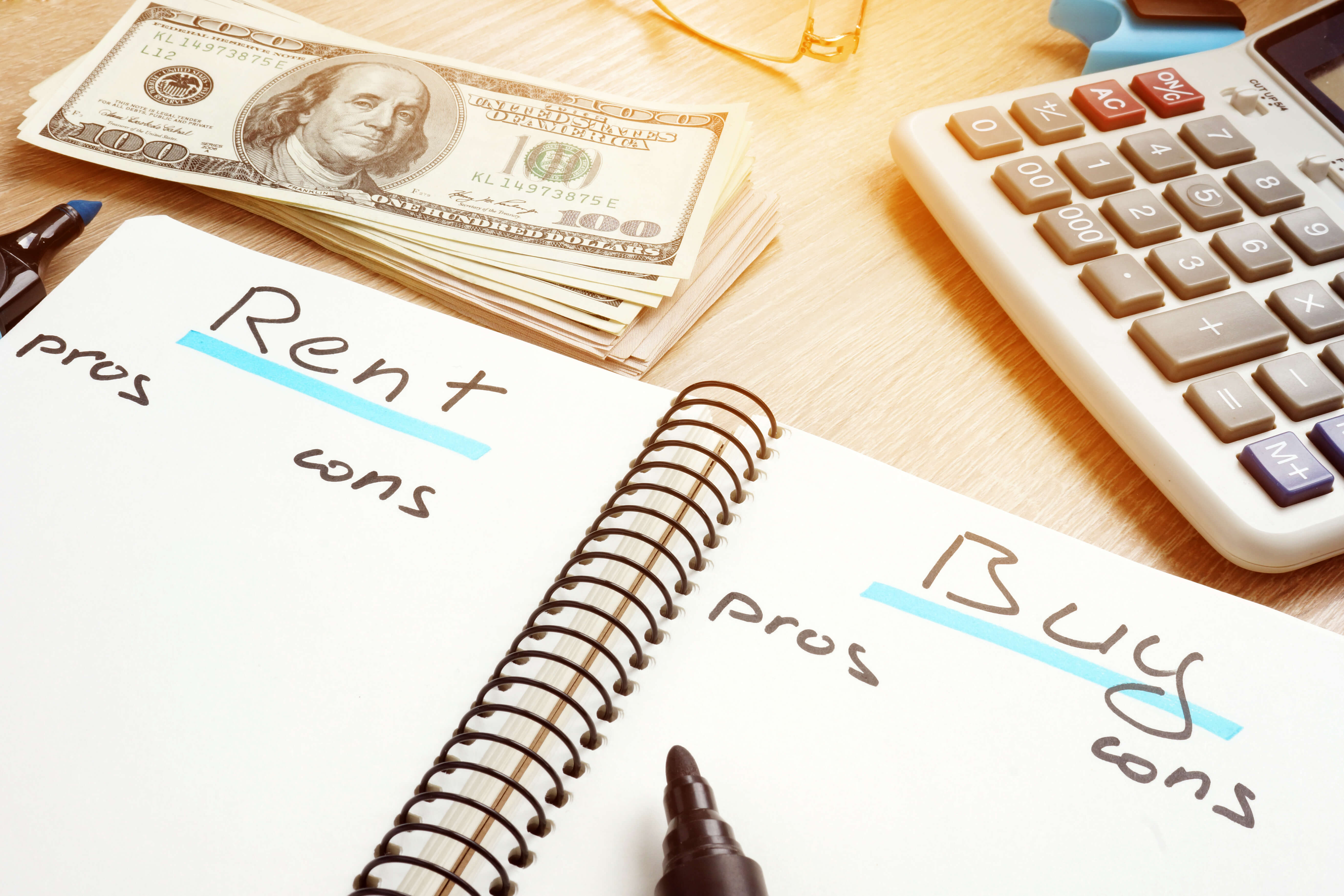There’s a knock at your bedroom door. It’s accompanied with a shrill nag:
“Get out of bed! It’s already noon, you lazy butt!”
That’s your mom. She has plans to convert your room into a yoga studio. Dad wants it for his home office. And all you want is for the sun to stop peeking through the curtains.
Time to move out. But there’s something you have to consider first: buying a house vs renting an apartment. If you make the wrong choice, it could leave you homeless and broke.
Is there a different option? Of course, there is. Find out how to choose wisely by moving on to the blog.
Buying a House vs Renting an Apartment: a Time Investment:
The first thing to consider, well before financial cost, is time. A broad question to mull, “how long do you plan to stay in one spot?”
Each decision, renting an apartment or owning a home, is a commitment to time in a single location. They’re both contractually binding; but, you’re signing up for different longevity.
If you don’t see yourself in the same place a couple of years from now: check apartment app and rent.
If you love the area, and you’d like to set up a permanent residence: buy a home.
Time investment is a crucial variable in calculating costs.
Love the Neighborhood?
Owning a house is a wise decision if you plan on staying for a while.
Before moving forward (or out of your mom’s house), check if you afford a house in the area of your choice. It’s a good idea to get a gist of the quality of homes within your price range using Hommati.
It might surprise you what you can or cannot afford. This might persuade you to rent instead or move elsewhere.
You love the area. You love the house. I hope you love your neighbors.
Let’s talk about money.
Conventional home-buying wisdom would say to make a down-payment of 20% on the house. If you can’t afford 20%, there are government or less traditional loans to fund the mortgage. However, there are advantages to the former:
- You’ll pay less in the long run. If you knock out 20% of the home’s payment from the start, you’ll have less of a principal that accrues interest.
- Having a higher down-payment is a show of good risk. Banks will loan you the money at a lower interest rate if they think you won’t default.
- Loaners require private mortgage insurance (PMI) if they think you’re a greater risk. This is insurance for them, which you’ll be paying.
If you can afford the housing costs, start working on your lawn tidying skills.
How About a Bachelor’s Pad, Instead?
If you want to get outta Dodge for a couple of years or dip your toes into adulthood, an apartment is your best bet.
If you don’t like it, an apartment is less of a ball and chain. Breaking a lease is less costly and less headache than reselling a home. Usually, it only costs a couple of month’s rent to ditch the apartment.
The biggest downside to renting an apartment: long-term cost. Remember, renting an apartment shouldn’t be more than the short-term.
Lease payments are typically more costly than mortgages. In the long-run, it’s best to buy a house.
Weird, right?
Something else to think about: you don’t own an apartment. You do own the house and are the owner of any profit it may generate.
Rent is pricey. It’s subject to frequent changes at the whim of the market. Don’t do it for long periods of time.
Get a Move On!
When moving out, buying a house vs renting an apartment is your biggest conundrum.
Each has its caveats. Each has its benefits. Both share a relationship with time.
If you want to live somewhere for long, buy a house. It’s cheaper month-to-month, and it’s an investment piece.
If you don’t want to live in the same spot indefinitely, rent an apartment. The same is true if you can’t afford the down-payment. It’s more expensive monthly, but it’s less binding financially.
Get moving into your dream house or sweet pad. Let us know if you make it outta your mama’s house.
Read Also:






















